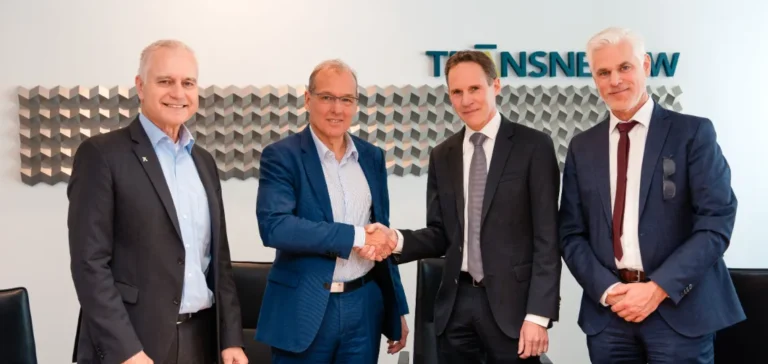GE Vernova Inc. announced it has been selected by TransnetBW GmbH to modernise the strategic Kühmoos substation, located in southern Germany near the Swiss border. This site plays a crucial role in grid regulation, voltage stability, and the management of electricity exchanges between Germany, France, and Switzerland—three major energy markets in Europe.
A pivotal point for European interconnection
The Kühmoos substation serves as a critical transmission node, connected to two pumped-storage hydroelectric plants. Its modernisation is part of TransnetBW GmbH’s investment programme to strengthen the safety and reliability of electricity networks on a regional and European scale. The stated goal is to enable better integration of renewable energy and support the continued growth of cross-border electricity flows.
GE Vernova will deploy a new 380 kilovolt (kV) gas-insulated substation, replacing the existing air-insulated equipment. This transformation will double the site’s capacity while reducing its land footprint, an advance made possible by using compact technologies. Fifteen bays equipped with a four-main-busbar system will provide increased flexibility and safer electricity distribution during the works, with no significant operational interruptions.
Advanced technologies for grid stability
The project also includes the integration of a mechanically switched capacitor with damping network (MSCDN). This technology helps regulate voltage and reduce losses, which are especially important as high-power flows increase on the grid. GE Vernova thus confirms its commitment to delivering solutions tailored to the requirements of the European sector, where grid safety and flexibility have become critical challenges.
According to Dr. Rainer Pflaum, Chief Financial Officer of TransnetBW GmbH, “at the Kühmoos substation, we are reinforcing a vital energy hub for Germany and its neighbours. This partnership with GE Vernova forms part of our strategy to adapt and secure the network amid an evolving electricity landscape.”
Johan Bindele, Vice President and Chief Executive Officer of Grid Systems Integration at GE Vernova, stated that “this project marks an important milestone for the entire sector, as Europe accelerates its investment in infrastructure modernisation and market interconnection.”
A transforming market and long-term outlook
The European Union’s ambitions in renewables, confirmed by forecasts from the International Renewable Energy Agency (IRENA), aim to increase the share of renewables to 70% of electricity production by 2030 and 90% by 2050. Achieving these targets will depend on the capacity to modernise infrastructure and guarantee system flexibility, as highlighted by the latest Energy Transition Index from the World Economic Forum.
The modernisation operations led by GE Vernova illustrate the rapid evolution of the European electricity market, faced with the rise of renewables and intensifying cross-border exchanges. Investments in critical network nodes such as Kühmoos remain a key lever to ensure long-term sector stability and competitiveness.






















